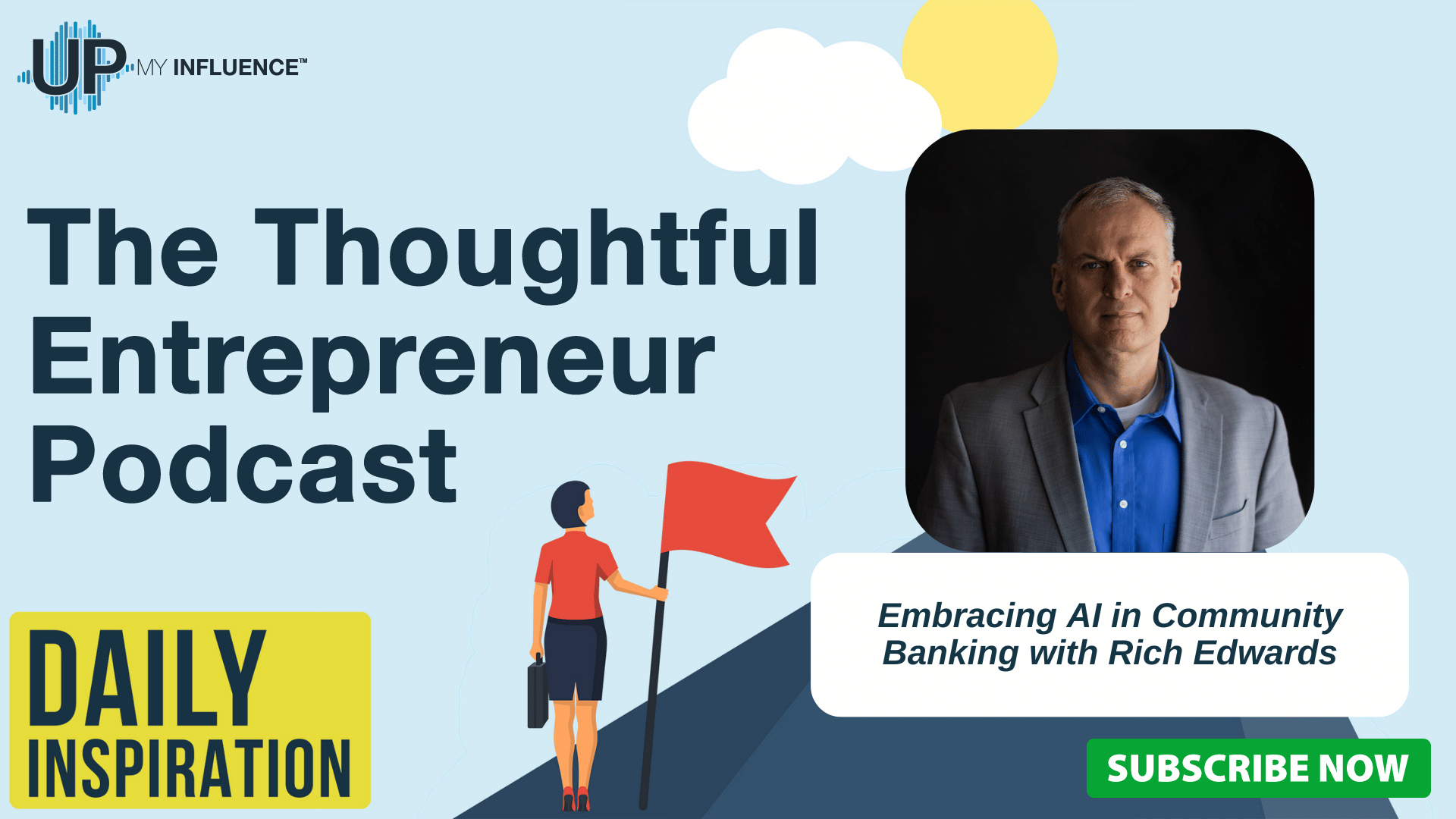THE THOUGHTFUL ENTREPRENEUR PODCAST
In this episode of the Thoughtful Entrepreneur, your host Josh Elledge speaks with CEO of Mindspan Systems Inc., Rich Edwards.

Rich Edwards, as the CEO of Mind Span Systems, leads a team that specializes in helping community financial institutions with marketing automation, communication, and personalization using data. They focus on smaller institutions with assets below 10 billion, which may not be technologically advanced but are looking to leverage tools like machine learning and AI to improve their services.
Rich highlighted a phenomenon he called the ‘barbell effect' in the banking industry. This effect is characterized by the dominance of large and smaller local banks in the market activity, leaving a gap in the middle. He also discussed the attitudes and trends of banking consumers, emphasizing the fear of another financial collapse and the concentration of activity at both ends of the banking spectrum.
Rich explained that while AI is a powerful productivity tool, it won't immediately replace jobs but rather enhance the capabilities of professionals. He emphasized leveraging AI to focus on tasks that add value and differentiate a business.
Under Rich's leadership, Mind Span Systems helps clients with specific pain points, such as cost savings and support use cases. However, the real value of AI, according to Rich, lies in uncovering new opportunities and tasks that were previously impossible.
Key Points from the Episode:
- Introduction of Rich Edwards as CEO of Mind Span Systems
- MindSpan's work with community financial institutions
- Attitudes and trends of banking consumers
- Potential of AI in the banking industry
- Barbell effect in the banking industry
- AI as a productivity tool that enhances capabilities
- Specific pain points and value of AI in uncovering new opportunities
- Potential of using interns or assistants to enhance business operations
- MindSpan's resources on personalization in the banking industry
About Rich Edwards:
Rich Edwards serves as the CEO of Mindspan Systems, specializing in empowering community financial institutions through data-driven strategies and technologies.
With a profound background in analytics, marketing, artificial intelligence, and machine learning, he guides organizations toward transformative growth.
Throughout his career, Rich has collaborated with global clients in banking, insurance, and financial services, demonstrating his expertise in product strategy related to data center automation and artificial intelligence. Notably, he played a pivotal role in the launch of IBM Watson Developer Cloud.
Rich holds a Bachelor of Science in Engineering from Rensselaer Polytechnic Institute and a Master of Business Administration from the University of North Carolina at Chapel Hill.
Additionally, he served as an engineering officer in the US Army. Currently residing in Raleigh, NC, Rich Edwards and his family contribute to the local community.
About Mindspan Systems Inc.:
Mindspan Systems assists mid-market insurance, banking, and financial institutions with data-related challenges.
Recognizing the frustration stemming from limited insights, the company facilitates the execution of data-driven strategies, fostering transformative changes and securing a sustainable competitive advantage.
Mindspan Systems offers various services, including data science and data-driven technology solutions.
These empower organizations to construct personalized experiences tailored for each customer, utilizing laser-focused, trackable, and testable messaging to optimize marketing budgets for customer acquisition and increased wallet share.
The company prides itself on providing expertise and flexible, scalable solutions to meet specific requirements. Mindspan Systems stands ready to contribute its technical prowess and ensure the success of your organizational strategy.
Apply to be a Guest on The Thoughtful Entrepreneur:
https://go.upmyinfluence.com/podcast-guest
Links Mentioned in this Episode:
Want to learn more? Check out Mindspan Systems Inc. website at
Check out Mindspan Systems Inc. on LinkedIn at
https://www.linkedin.com/company/mindspansystems/
Check out Mindspan Systems Inc. on Facebook at
https://www.facebook.com/mindspansystems
Check out Rich Edwards on LinkedIn at
https://www.linkedin.com/in/richedwards/
Check out Rich Edwards on Twitter at
https://twitter.com/richedwards
Check out Rich Edwards on Instagram at
https://www.instagram.com/mindspan_systems
More from UpMyInfluence:
We are actively booking guests for our The Thoughtful Entrepreneur. Schedule HERE.
Are you a 6-figure consultant? I’ve got high-level intros for you. Learn more here.
What is your #1 Lead Generation BLOCKER? Take my free quiz here.
Want to learn more about all the podcasts managed by UpMyInfluence? Opt in here.

